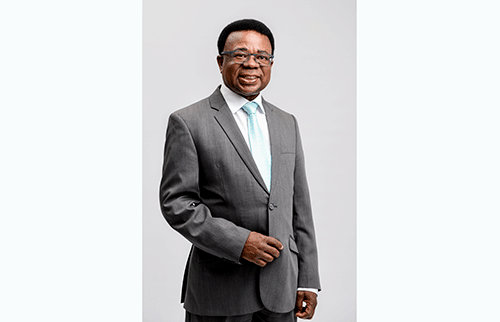The Government Institutions Pension Fund (GIPF) has invested N$5.3 billion in the domestic economy in 2022, up from N$4.8 billion in 2021. This was mainly done through their unlisted investment programme, which is invested in 22 unlisted investment managers and at least 83 Namibian portfolio companies.
Despite this significant investment, more than N$2.1 billion is still available to be invested.
These figures are contained in the fund’s 2022 integrated annual report launched last week with a review panel that included CEO David Nuyoma, board chair Nillian Mulemi and deputy board chair Faniel Kisting.
“These unlisted investments provide exposure to various sectors of the Namibian economy including property, venture capital and private equity, private debt, agriculture, pharmaceutical and health services, SMEs, renewable energy, infrastructure and affordable housing,” reads the report.
The fund investment strategy and policy actively support government endeavours to stimulate and grow the domestic economy and provides a framework ensuring the fund complies with the Namibia Financial Institutions Supervisory Authority (Namfisa)’s regulatory requirement (Regulation 13(2)) of investing a minimum of 45% of its assets in Namibia.
During the last three years, GIPF has made significant strides in meeting this domestic investment target and in fact exceeded the threshold by 8%, with 53% of total investments being invested in domestic assets by year ending 31 March 2022.
The fund’s top brass were also quick to share their excitement in contributions made to the housing provision pillar under the Harambee Prosperity Plan (HPP), given the dire shortage of affordable housing in the country. For the 2021/22 financial year, 1 807 erven were serviced, 5 810 houses constructed and 2 890 houses financed. The bulk of GIPF’s investment here were made in the affordable housing category.
This was expanded by the pension-backed home loan scheme initiated and approved by the board, which will allow members to use a portion of their pension balances as collateral to purchase land or renovate or build a house in both proclaimed and unproclaimed areas. The home loan scheme is planned for rollout in the 2022/2023 financial year.
Furthermore, Mulemi stated the fund’s investment return increased with 10.8% to N$13 billion. The increase is attributed mainly to favourable investment returns during the period under review.
Pensioners receiving regular payments increased by 1 434 from 45 497 to 46 931, representing an increase of 3.2% when compared to an increase of 15% (from 39 504 to 45 497) during the 2021 financial year.
“During the year, we paid out N$5.5 billion in benefits to members, representing an increase of 7.5% year-on-year, while pension contributions from contributing employers rose 1.2% to N$4.5 billion. The increase in benefit payments is mainly attributable to the increase of 1 434 newly retired members, and an annual inflationary adjustment of 4.62% offered to pensioners,” the report added.
FIMA
Reflecting on the draft Financial Institutions and Market Act (FIMA) at the review, Nuyoma said: “Obviously, we have gotten used to certain things in a particular manner. Intent is not always appreciated because it disrupts our old ways of doing things. But there are certain realities we have to deal with.”
The GIPF CEO noted the biggest challenge is being treated as if all funds are of the same size with other funds, noting that some requirements are not practical enough.
“There are a lot of elements in there that will give us all sorts of challenges including issues of election of workers representatives, reporting periods that are now reduced and making annual reports physical to members. With the number of our members, it will give us a logistics nightmare,” Nuyoma explained. He added that physically distributing annual reports and other documents will have serious cost implications.
“FIMA will give us challenges. I hope there will be an element of understanding of the need to be practical about all these things,” said Nuyoma.



